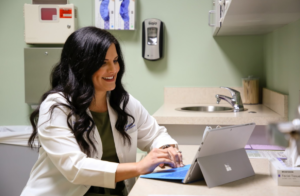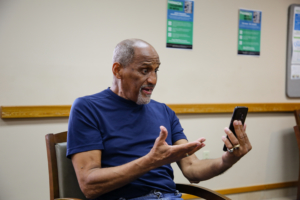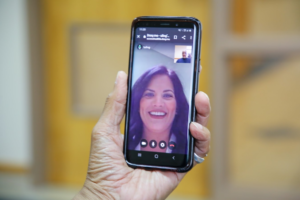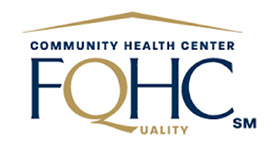AHL in the News, Acadian Care – New Orleans, Access Health Louisiana Primary Care at Pythian, Belle Chasse C.H.C, Kenner C.H.C., South Broad C.H.C, St. Bernard C.H.C., St. Charles – Norco C.H.C, St. Charles Community Health Center – Luling, St. Tammany – Slidell C.H.C, Tangipahoa C.H.C, Woodworth C.H.C., Washington C.H.C
Behavioral Health Therapy in the Virtual World
By Jan M. Kasofsky, PhD – Access Health Louisiana, Vice President of Behavioral Health and Human Services
 Forming a connection or engagement is the basis of a therapeutic relationship between a therapist and their client. As humans evolved, we developed sophisticated assessment skills based on observing and interpreting how others walk, talk, move their hands and emote with their eyes and mouth. Interpreting these cues is important for rapidly establishing rapport, but what happens when a natural face-to-face encounter in an office or clinic is upended due to the widespread risk for infection?
Forming a connection or engagement is the basis of a therapeutic relationship between a therapist and their client. As humans evolved, we developed sophisticated assessment skills based on observing and interpreting how others walk, talk, move their hands and emote with their eyes and mouth. Interpreting these cues is important for rapidly establishing rapport, but what happens when a natural face-to-face encounter in an office or clinic is upended due to the widespread risk for infection?
Due to the community outbreak of the Corona Virus, both therapists and their patients, or clients, have had to rapidly adapt to reading and accurately interpreting non-verbal cues in a virtual environment. By mid-March it was clear that non-emergent, in- and outpatient, behavioral health appointments had to be transitioned to telephonic, or to the virtual world of teletherapy, for the health of providers and clients. While the move to virtual appointments had started a couple of years ago for some private and larger providers, most providers were preparing for the move to occur in the next few years. Most did not have the technology or experience to convert immediately to virtual appointments, though many did. Virtual and telephonic appointments would become the only formats to keep clients connected to their providers safely once the danger of infection was understood.
 The move to a virtual platform had to occur rapidly for therapists and clients to maintain their supportive relationships and for those sharply impacted emotionally to rapidly gain access to a behavioral health professional. To do this required both providers and patients to maneuver the technology, address the issues of privacy and understand and interpret laws and billing rules that were softened or waived due to the crisis.
The move to a virtual platform had to occur rapidly for therapists and clients to maintain their supportive relationships and for those sharply impacted emotionally to rapidly gain access to a behavioral health professional. To do this required both providers and patients to maneuver the technology, address the issues of privacy and understand and interpret laws and billing rules that were softened or waived due to the crisis.
So now that we’re a few months out from this “disruption” of our traditional, facility-based care, what did the early months look like from the therapist’s and the patient’s point of view?
Let’s start with the regulatory and reimbursement side for providers: Almost immediately, the federal government changed the Medicare and Medicaid rules on telephonic and virtual sessions, rules regulating confidentiality were softened due to the emergency, as were rules regulating out of state virtual appointments. Virtual and telephonic appointments not previously paid for by insurers became billable services and prescribers could provide access to controlled medication prescriptions without an in-person session.
 Rapid adoption of new technology occurred using smart phones and the internet. After an application was selected, there was initial fear and concern that the technology would be a barrier due to poor connectivity, sound and picture, but thankfully, many appointments moved fairly, easily into the virtual realm. There were, however, clients in areas without WIFI who had to move to “hot spots” to connect. Most clients were motivated to overcome their initial concerns about the technology and privacy, and they found value in their virtual sessions.
Rapid adoption of new technology occurred using smart phones and the internet. After an application was selected, there was initial fear and concern that the technology would be a barrier due to poor connectivity, sound and picture, but thankfully, many appointments moved fairly, easily into the virtual realm. There were, however, clients in areas without WIFI who had to move to “hot spots” to connect. Most clients were motivated to overcome their initial concerns about the technology and privacy, and they found value in their virtual sessions.
What happened to the therapists and how are they doing?
About half of the providers at Access Health Louisiana (AHL), the largest FQHC mostly serving the greater New Orleans area, had no prior experience with teletherapy/telemedicine prior to March 2020, but by mid-May, all mental health services became virtual. By June, 80% of the providers responded to an internal survey noting their initial concerns; they also described their relief due to not needing to have in-clinic appointments that could lead to illness, being able to keep clients engaged in treatment, not needing to arrange their own child care, their ability to offer flexible appointment hours and having a higher number of kept appointments. Nearly all providers expressed a desire to provide some level of intermittent and initial appointments in person when it becomes safer.
Melissa Laneaux, LCSW, one of AHL’s school-based therapists noted the satisfaction of her teenaged clients to a virtual group therapy appointment; “I expected no one to talk and for them all to be nervous, but as the students became more comfortable, they all participated and were excited to talk. The students liked seeing each other on the screen because there were several of them. The group went as well as any face-to-face group would have gone, so I’m now a huge fan.”
What happened for the clients and how are they doing?
In early April, AHL, surveyed their behavioral health clients regarding their ability to use smart phones, tablets and computers, their access to WIFI, and their satisfaction with the quality and convenience of moving to teletherapy appointments; 90% of the respondents affirmed a positive response to the technology and a desire to continue virtual appointments. There has been a steady increase for requests for behavioral health services through a survey tool posted on the AHL website; new and existing clients are requesting appointments that focus on grief and loss, family management, anxiety, depression, substance abuse and addressing stressful issues, such as isolation, related to the pandemic.
Patient satisfaction with teletherapy in the literature sites a higher level of satisfaction related to convenience, not having to travel and being able to connect in the comfort of their own homes, shorter wait times, avoiding a waiting room, the ability to match therapists to client preferences and the promotion of patient-centered communication. One of Vanice Zenon’s, LCSW, the Behavioral Health Director at AHL, clients said the following about their virtual session; “This was great because I can more easily manage my family’s needs. I don’t need to arrange childcare and I can share my world with you virtually where you can see my kids and home.” Another client noted “I hope this can continue after COVID is over because it’s easier because I don’t have to take more time from work to travel to my appointment.”
What’s the future? At the time of writing this article, Louisiana is experiencing a second wave of infection, there is no vaccine available and many still congregate without social distancing or masks. Therefore, no date has been identified for AHL behavioral health services to reinitiate face-to face-appointments. Once safer and if demand increases, clinic-based services will minimally return. In-clinic appointments will reflect best safety and therapeutic practices and focus on newly admitted clients or reengaging existing clients requesting them, with or without technological challenges. All pre-appointment registration and in clinic, primary care appointments, will expand screening for anxiety, depression and substance misuse and abuse to ensure behavioral health needs of our community and current clients are identified early and addressed by professionals, largely through teletherapy.
(This article was featured in the September/October 2020 edition of the Healthcare Journal of New Orleans. To read other articles written by Dr. Kasofsky, click here.)

